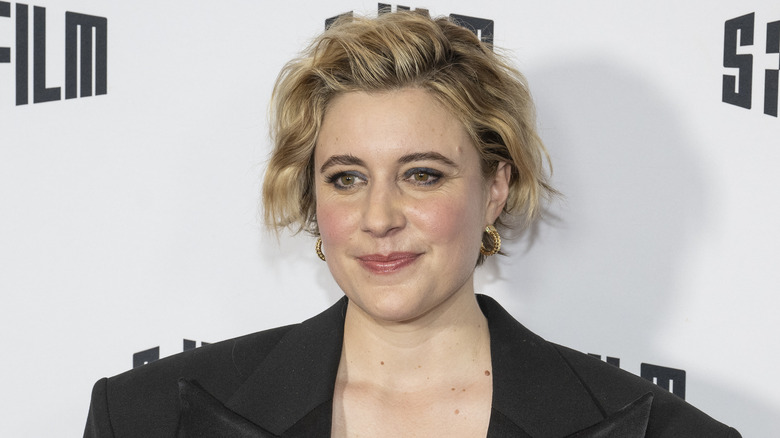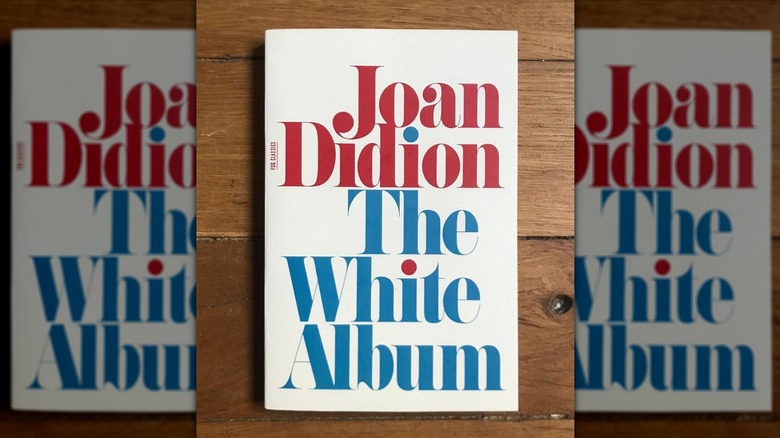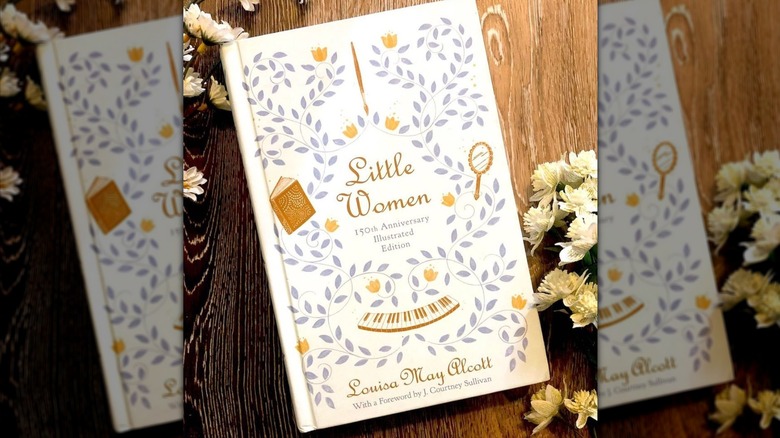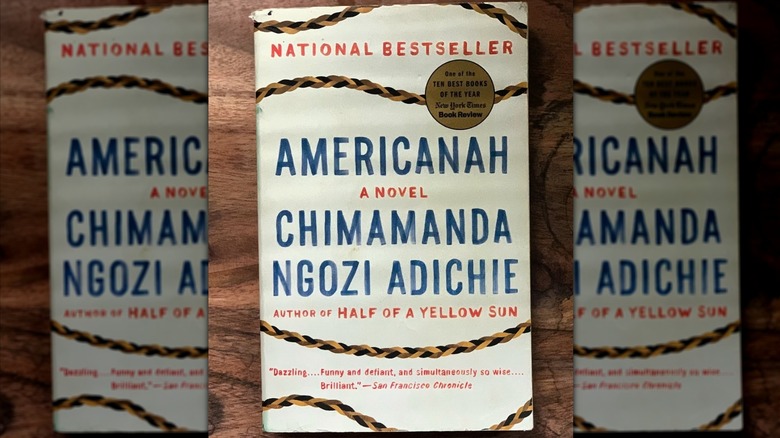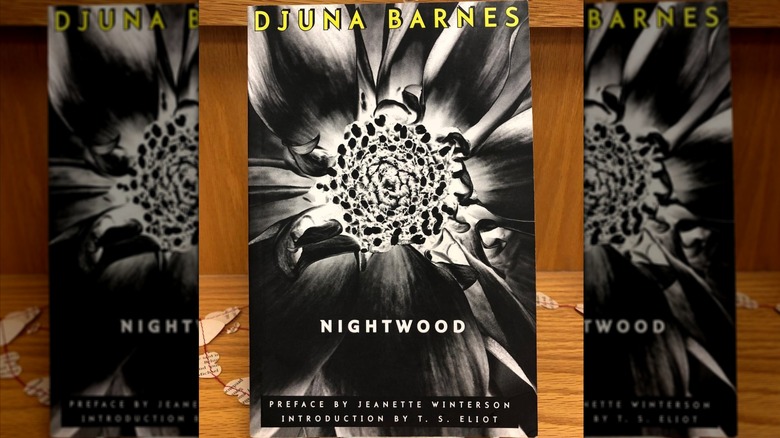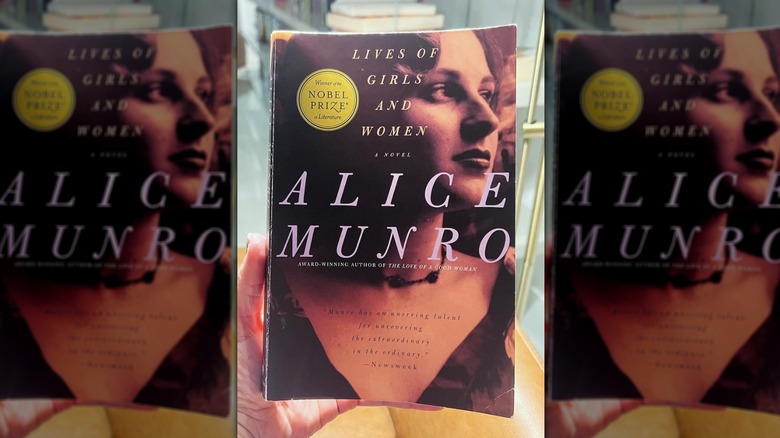Greta Gerwig's Favorite Books Are The Ultimate Feminist Reading List
Summer 2023 was the official return of Barbie. Even those who hadn't picked up a Barbie doll in decades were heading to the movie theater in droves — in Barbie pink, no less — to see what Greta Gerwig had in store for audiences. No one (except the GOP, of course) was disappointed with Gerwig's incarnation of the iconic doll and the film's commentary on feminism and toxic masculinity. In fact, to call Barbie brilliant, just might be an understatement.
Although Gerwig became a household name this past year, she's been around for a while. Before she sat in the director's chair, she was an indie darling having appeared in such independent films as Greenberg, Lola Versus, and Frances Ha just to name a few. When she released her directorial debut Lady Bird, which she also wrote and is semi-autobiographical, audiences and the film industry realized Gerwig had a lot more to say about feminism and the complexities of being a woman in our culture — thoughts she perfectly articulated in the tear-jerking monologue that America Ferrera's Gloria recited in Barbie.
But feminists aren't born, they're made. It not only takes living in a patriarchal world, but art in all its forms, to influence how and what we believe. To no surprise, the books that Gerwig loves and credits as being influential in her life are feminist readings through and through. Gerwig's favorite books aren't just the ultimate feminist ready list, but they're stories that will make anyone question the complacency in those who don't fight for gender equality.
The White Album by Joan Didion
Most feminists are already well-acquainted with Joan Didion, but if you're not, then one of Gerwig's favorites, "The White Album," is a great place to start. Didion was part of the New Journalism movement of the 1960s and '70s and this is considered her biggest contribution to the movement, as well as the literary canon as a whole. It's a collection of essays that are both journalistic and memoir in nature, covering the events in California in the late '60s, from politics to drugs and music, and even includes her psychiatric assessment — a subject that was rarely discussed in 1979 when the essays were published.
"[Joan Didion] is my patron saint, and this collection of essays helped me understand the world I was not around for but that still shaped my life. Her truths are tiny knives, piercing the surface and bleeding out the illusions of life, especially life in California," Gerwig wrote for Vulture in July 2023.
Didion never steered away from complexities and contradiction, whether it was in regards to race, sex, or gender, instead choosing to lean into them. Her take on the second wave of feminism at that time — which she discusses in part three of "The White Album" — was unique and not exactly in line with what Gloria Steinem was preaching. Didion fearlessly critiqued the movement, especially how it was exploited by the mainstream, arguing that it actually did little to empower women and more to make us appear weaker. Something that was frowned upon by some feminists at the time, but makes more sense now that we're in the fourth wave of feminism.
Little Women by Louisa May Alcott
When Louisa May Alcott published the first volume of "Little Women" in 1868, her characters — who were based on her and her three sisters — were ahead of their time. Jo March, who was based on Alcott herself, was especially an anomaly for that era, shunning marriage and children in favor of pursuing her literary dreams. Like so many women throughout history who have rebuffed societal constraints, Greta Gerwig saw much of herself in Jo. She loved "Little Women" so much that she wrote and directed the 2019 adaptation of it, with Saoirse Ronan in the role of Jo.
In 2020, Gerwig told Creative Screenwriting, "Jo March allowed me to be ambitious and write things down. She gave me permission to be myself. It's impossible to imagine who I am today without her. The meaning of Louisa May Alcott's text has transformed me as I grew up into an adult ... Every time you revisit it, you [find] yourself identifying with something new. Each reading allows you to connect with some historical perspective in a new way. Ultimately, every good story stands the test of time because it tells us something about what it means to be human."
Gerwig's adaptation received six Academy Award nominations, including Best Picture and Best Adapted Screenplay. The New Yorker's film critic Anthony Lane wrote of the adaptation, "Such equipoise is almost as rare in cinema as it is, God knows, in politics, and right now, though we can't foretell whether time will be cruel or kind to Gerwig's 'Little Women,' it may just be the best film yet made by an American woman."
Americanah by Chimamanda Ngozi Adichie
Chimamanda Ngozi Adichie is another feminist writer that everyone should know. In fact, she authored the 2014 book "We Should All Be Feminists" (and we should). Born in Nigeria, Adichie has written extensively not just about her experiences as a woman, but as a person of color in the U.S., themes we see throughout "Americanah."
"In this book, Ms. Adichie has constructed a full-on romance that has the addictive power of a Jane Austen novel but with the specifics of life in Nigeria, as well as life in the United States as an immigrant. I fell in love with Ifemelu and Obinze in a way that I haven't felt since I was a child reading novels for the first time," Gerwig wrote for Vulture in July 2023.
Like Didion, Adichie is a keen observer of the world around her, especially exposing the inequality and ugliness that some people prefer to ignore. She also believes in taking a stand against the things that contribute to this harsh reality which is exactly why she penned the ambitious and strong-willed Ifemelu. It's not just a love story between two people forging a new life in a new country, but a story about self-love and self-acceptance. "'Americanah' is witheringly trenchant and hugely empathetic, both worldly and geographically precise, a novel that holds the discomfiting realities of our times fearlessly before us," wrote Mike Peed in his review of the book for The New York Times. "It never feels false."
Nightwood by Djuna Barnes
Published in 1936, "Nightwood" not only made Djuna Barnes instantly famous in feminist circles, but the book itself would become a classic in lesbian literature, per NPR. Categorized as a roman à clef because the main character Nora Flood is very much an extension of Barnes herself, "Nightwood" was ahead of its time in how it dealt with female sexuality, gender roles, and same-sex relationships. Nora, the female protagonist, has the business, the land, and ultimately the power in this novel in which men have been stereotypically feminized. It's all so deliciously hot.
"There is something mysterious and unreachable about this novel, it makes you want to peer behind it somehow. It is rigorous and brave, never allowing the reader to become complacent. It is tragic and erotic and no matter how many times you read it, it eludes your grasp," Gerwig wrote for Vulture in July 2023.
Upon its publication, the book garnered a lot of high-profile fans including Peggy Guggenheim (who financially supported Barnes at the time), T.S. Eliot (who wrote the introduction), and Dylan Thomas who declared it "one of the three great prose books ever written by a woman," per The Guardian. Fellow feminist and erotica writer Anaïs Nin was so influenced by Barnes that she named a character in her novel, "A Spy in the House of Love" after Barnes. Needless to say, the latter was not thrilled.
Lives of Girls and Women by Alice Munro
Alice Munro has always been the master of coming of age stories and all the complexities that come with it, and the best place to really see that gift is in 1979's "Lives of Girls and Women." Del Jordan is a small town girl who's fortunate enough to be surrounded by strong, yet eccentric women who thrive best outside the confines of men.
"Alice Munro always gets to the thing inside me that knows, with certainty, that this is my one life. There is a penetrating sense of ultimate aloneness in her writing. And in just a sentence she can turn from the present to the future and then all the way into the past, making the reader feel as if they are experiencing the sweep of life as moments accumulate, and then double back and reconsider. It presents at first as just a drip drip drip ... and then before you know it, you're standing in a waterfall," Gerwig wrote for Vulture in July 2023.
The title of the book comes from a speech that Del's mother makes regarding changes ahead, "There is a change coming I think in the lives of girls and women. Yes. But it is up to us to make it come. All women have had up till now has been their connection with men." The character then goes on to recite a few lines from Lord Tennyson's 1842 poem "Locksley Hall," a poem which could be viewed today as an incel's mantra after having his heart broken. So, yes, there are a lot of layers in this novel and it's wonderful.
